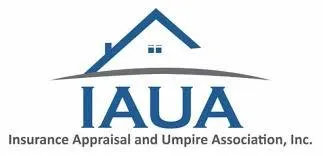


When the Carrier's Settlement Offer is LESS than what is Necessary for Proper Restoration Your choice is to Refer the Insured to an Attorney or an Insurance Appraiser You Trust
Whether you're a contractor, public adjuster, or attorney, referring an insured to a appraiser who is skilled at obtaining fair awards efficiently is and should be the goal.
CERTIFIED BY


Is the claim Ripe for Appraisal?
1. Is the reason you want to invoke appraisal because of
PRICE or
Appraisal can resolve pricing differences. If it's purely price, is the cost more than $10,000?
METHODOLOGY or
Did the carrier pay less because they say some work is not needed? If the differences are based on restoration methodology, then appraisal can resolve these differences. Keep in mind that the price and methodology tug of war between appraisers may end up involving a third-party contractor, experts, manufacturers, building codes.
CARRIER is denying damage
If the carrier has determined that not all the damages are covered, then appraisal could be viable, but it will depend on the policy the insured purchased. Check the policy conditions and read the appraisal clause. If the appraisal clause states causation cannot be discussed, opined, etc., then appraisal is not viable in this circumstance.
2. Did you get the Policy? Have you read the appraisal clause?
The appraisal clause will indicate what the appraisers can and cannot do.
The appraisal clause may indicate that the insured cannot invoke appraisal unless and until all their duties are fulfilled.
Has the insured fulfilled their policy duties? If not, the carrier may reject the appraisal and not allow it.
3. Has the insured sent a Proof of Loss to the Carrier?
4. Did you prove your costs are reasonable?
5. Have you Contacted an Attorney?
It is always good advice to have the insured contact an attorney.
There are circumstances where even if the carrier accepts the appraisal process and even if you do obtain a fair appraisal award, the carrier could reject the award and force the insured to get an attorney.
Some insurance companies have a reputation for trying to stack the deck so that the appraisal process is unfair to the insured.
The insured should know going in which insurers are that have this reputation.
Ask the appraiser, if they don't know, may not want to hire them.
If the policy is provided by a carrier who stacks the deck, then an attorney may be the best resolution option.
How should you qualify an appraiser?
Questions You Should Be Asking Appraisers Before You Refer Them to Your Clients.
Does the appraiser obtain the insurance policy?
An uniformed insurance appraiser might tell you that appraisers should never get or read the policy.
Or they might say, NO appraisers can't get the policy.
Or No because we can't discuss coverage.
If the appraiser you are considering hiring says any of these replies or implies they do not get the policy and even if it's given to them, they do not read the policy... then walk away or better yet... RUN!
This question will knock out the majority of the riff raff.

What is their Fee?
The answer depends on the state your property is located in.
If it's an hourly rate... great! This is always accepted in all states.
It's considered the most fair to both the appraiser and the party hiring the appraiser.
If its a flat fee... ok but you should be prepared for what that means
What happens if the appraisal is taking more time. Will the appraiser give the same effort or rush to close it out so that the appraiser doesn't work for free or less than they would feel is fair. If the carrier doesn't like the award and if your property is located in certain states, the award could be overturned.
If they say it's a schedule...
This generally mean the higher the award the higher their fee. This incentivizes them to obtain a higher award, and it is frowned upon in certain states, especially Colorado.
If they say it's a percentage... This is ok in some states though it is not done by top professional appraisers. The reason is that it can be seen as an incentive. If the appraiser has an incentive them they may loose their impartiality. In some states it can't be done and paying an appraiser this way could get the award overturned.
The best answer is that the appraiser charges hourly. The best appraisers will always ensure their service was of value.

Do you create an action plan, a bonified strategy? Can you share some examples with me?
The best appraisers will know the based on the type of claim, reviewing the differences, and the carrier what the carrier's appraisers objections will likely be. Your appraiser should have a plan to overcome those predeicatble objections and a plan to prove their position on the differences is reasonable.
What's the saying, people that fail to plan... plan to fail?
How does the Appraiser determine if the loss ripe for appraisal?
It offers a structured, binding alternative to litigation. It minimizes legal expenses, reduces backlog, and helps maintain customer trust by demonstrating a commitment to fairness.
Are you certified by IAUA or PLAN or Both?
The best appraisers are certified. The Insurance Appraiser and Umpire Association (IAUA) as well as Property Loss Appraisal Network (PLAN) both certify appraisers and umpires. When an appraiser is certified and a member of these organizations, the appraiser agrees to abide by the organization's rules and ethics. If the appraiser does not, they can be sanctioned and even removed as a member. It a higher standard and from my perspective it's important.
Those certified have made a decision to be as knowledgeable as possible. For example, to be certified appraiser with PLAN the appraiser took a three-day course then had to pass a test. To remain certified both organizations require the appraiser to recertify and or take class every three years so the members that are certified are always being educated and up to date with the appraisal industry.
Those certified have made a commitment to excellence. It's my opinion that Appraisers that are NOT certified demonstrate they are wild cards and putting your faith into them could be disastrous.
Do you use Xactimate & how do you use it?
This question is more geared toward residential claims. Most appraisers use Xactimate but some have other people write their estimate. The problem is that if I give a scope to someone else to write the estimate, the person writing the estimate is using their beliefs to do so. I would not want an appraiser or an umpire that uses others to write their estimate unless I knew who the person was writing the estimate.
How long does the process typically take?
Depending on case complexity and responsiveness from all parties, the process can take anywhere from a few weeks to a few months. We keep things moving with proactive communication and clear timelines.
Will we be updated throughout the process?
Absolutely. We maintain open, professional communication with all involved parties — so no one is left guessing where things stand.
Are you familiar with the state laws?
In Colorado you might ask if they are familiar with Bulletin No. B-5.26
The state laws and the policy are critical to the outcome of any appraisal.
Will you commit to issuing a clear, detailed award?
Many appraisers are not aware of ramifications of unclear awards or awards that have a zero (0) entered instead of Not appraised.
If you have an agreement with the insurance company for your personal p[roperty and for the sake of this example we will say it is $5000.00 however id the appraiser, write a zero next to it instead of Not Appraised it could cost the insured $5000.00. So another question could be, do you put a zero next to categories not appraised?
When Your Client’s Claim is STUCK,
Insurance Appraisal may be the best course.
The contractor's job is to restore the property, yet many are faced with settlement offers from insurers that are lower than reasonable.
Your client’s claim has stalled to a halt and a property loss insurance appraisal is the option you are recommending to the insured.
You need a trusted, professional, skilled, knowledgeable, insurance appraiser.
Selecting the right appraiser can be the difference between an award that allows the restoration to be completed properly and one that forces the insured into paying out of pocket or worse.
Why Philip Weber?

Skilled
Fair awards are not accidents.
It takes a skilled appraiser to be able to present their position in a compelling way so that the other appraiser and or the umpire agrees with their position.

Efficiency & Turnaround
For some people expediency is the priority and for others it's the position accuracy.
After being hired and before the process begins, I work with the client to ascertain their goals and create a plan with that in mind.
I set the appraisal goals to align with the client.

Communication
I know that many appraisers are difficult to communicate with. I know it's a concern for all clients.
I keep the client informed. I provide updates and respond to emails, texts, phone messages, and I answer the phone.

Results
Results for me are defined as a fair claim award.
Appraisers in Colorado are not allowed to advocate for the insured or the carrier.
Many do not know that and believe the appraiser is an adjuster of sorts.
In Colorado, appraisers are advocates for their position and the goal is a fair award.
If any appraiser tells you differently, they are not being truthful of ethical.
If they are willing to scheme the system, they are willing to scheme you too.
The best appraisers get the fairest awards which if you are the insured, then the award represents enough to restore your property properly. If you are the carrier, it means no more than is necessary to restore the property properly.
What You Can Expect from Us
✅ Read the Policy and determine if the claim is ripe for appraisal.
✅ Create a plan of action
✅ Introduce myself to the other appraiser and attempt to set up a cordial atmosphere and an environment where the other appraiser wants to work with me to solve the differences.
✅ Provide disclosures to the other appraiser and to the umpire if an umpire becomes involved.
✅ Review the other appraisers' disclosures to ensure no RED FLAGS are evident, no potential; biases that could be unfair to the insurance appraisal process.
✅ Provide a list of Umpire Candidates that I have personally vetted and believe are fair.
✅ Review the other appraiser's umpire candidates, interviewing them and vetting them.
✅ Attempt to help set up a timetable both appraisers agree with.
✅ I investigate the loss. Review all documents provided to me by the insured and request the insurer and the insurer's appraisal provide all relative documents and then review them once received.
✅ Prepare for the inspection and bring to it succinct differences that the appraisers can discuss and attempt to solve onsite.
✅ Attempt to inspect the loss with the other appraiser and while there, provide information that can help us come to an agreement on scope onsite.
✅ Determine what differences are remaining between the appraisers and create a plan to overcome those specific objections.
✅ Keep the insured or the AOB informed.
✅ Be mindful of efficiencies.
✅ Be in compliance with the laws and IAUA and PLAN ethics and rules.
✅ Obtain an agreed upon award with the other appraiser.
✅ Make sure the award is clear and does not compromise either party.
What You Can Expect from Me when the Umpire is involved
✅ Read the Policy and determine if the claim is ripe for appraisal.
✅ Create a plan of action
✅ Introduce myself to the other appraiser and attempt to set up a cordial atmosphere and an environment where the other appraiser wants to work with me to solve the differences.
✅ Provide disclosures to the other appraiser and to the umpire if an umpire becomes involved.
✅ Review the other appraisers' disclosures to ensure no RED FLAGS are evident, no potential; biases that could be unfair to the insurance appraisal process.
✅ Provide a list of Umpire Candidates that I have personally vetted and believe are fair.
✅ Review the other appraiser's umpire candidates, interviewing them and vetting them.
✅ Attempt to help set up a timetable both appraisers agree with.
✅ I investigate the loss. Review all documents provided to me by the insured and request the insurer and the insurer's appraisal provide all relative documents and then review them once received.
✅ Prepare for the inspection and bring to it succinct differences that the appraisers can discuss and attempt to solve onsite.
✅ Attempt to inspect the loss with the other appraiser and while there, provide information that can help us come to an agreement on scope onsite.
✅ Determine what differences are remaining between the appraisers and create a plan to overcome those specific objections.
✅ Keep the insured or the AOB informed.
✅ Be mindful of efficiencies.
✅ Be in compliance with the laws and IAUA and PLAN ethics and rules.
✅ Obtain an agreed upon award with the other appraiser.
✅ Make sure the award is clear and does not compromise either party.


© 2025 Hcounter Corp dba IPLappraisal - All Rights Reserved.